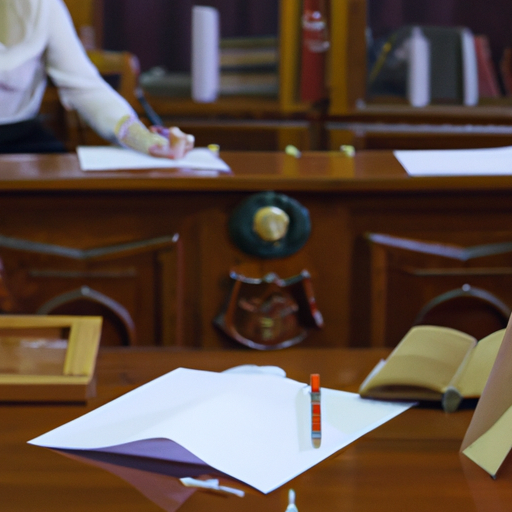The Importance of Early Childhood Education in Russia
Education in Russia plays a crucial role in shaping the future of the country. One aspect of education that holds immense importance is early childhood education. Early childhood education in Russia is considered a fundamental stage in a child’s development and lays the foundation for their future academic success.
Early childhood education in Russia focuses on providing a nurturing and stimulating environment for children aged 3 to 7 years. This stage of education is seen as the starting point for a child’s educational journey and is believed to have a significant impact on their cognitive, social, and emotional development.
One of the key reasons why early childhood education is highly valued in Russia is its role in preparing children for formal schooling. It is believed that a strong foundation in early childhood education equips children with the necessary skills and knowledge to succeed academically in later years. This includes developing basic literacy and numeracy skills, as well as fostering a love for learning.
In addition to academic preparation, early childhood education in Russia also focuses on the holistic development of children. It aims to nurture their social and emotional skills, creativity, and physical abilities. Through play-based learning and interactive activities, children are encouraged to explore their interests, develop problem-solving skills, and build positive relationships with their peers.
Another important aspect of early childhood education in Russia is the emphasis on parental involvement. Parents are seen as essential partners in their child’s education and are encouraged to actively participate in their learning journey. This includes attending parent-teacher meetings, engaging in home-based activities, and collaborating with educators to support their child’s development.
The Russian government recognizes the significance of early childhood education and has implemented various policies and initiatives to ensure its accessibility and quality. Preschool education is considered a part of the national education system and is provided free of charge in public preschools. Additionally, there are private preschools that offer alternative educational approaches and cater to specific needs.
To ensure the quality of early childhood education, Russia has established a set of standards and guidelines that preschools must adhere to. These standards cover various aspects, including curriculum, teacher qualifications, safety measures, and assessment methods. Regular inspections and evaluations are conducted to monitor compliance and maintain the quality of education provided.
In conclusion, early childhood education holds immense importance in Russia. It serves as the foundation for a child’s future academic success and overall development. Through a nurturing and stimulating environment, children are equipped with essential skills and knowledge, preparing them for formal schooling and beyond. The emphasis on parental involvement and the implementation of quality standards further enhance the effectiveness of early childhood education in Russia. By investing in early childhood education, Russia is investing in the future of its children and the nation as a whole.
Innovative Teaching Methods for Engaging Students in Russian Schools

Education in Russia has undergone significant changes in recent years, with a focus on implementing innovative teaching methods to engage students in schools across the country. These new approaches aim to enhance the learning experience and prepare students for the challenges of the modern world.
One of the innovative teaching methods being used in Russian schools is project-based learning. This approach encourages students to actively participate in their own education by working on real-world projects that are relevant to their interests and future careers. By engaging in hands-on activities, students develop critical thinking, problem-solving, and teamwork skills. This method also fosters creativity and allows students to take ownership of their learning.
Another effective teaching method being implemented in Russian schools is the use of technology. With the advancement of digital tools and resources, teachers can now incorporate multimedia elements into their lessons, making them more interactive and engaging. For example, virtual reality can transport students to different historical periods or geographical locations, providing a more immersive learning experience. Online platforms and educational apps also allow students to access educational materials anytime and anywhere, promoting independent learning.
In addition to project-based learning and technology integration, Russian schools are also embracing collaborative learning. This method encourages students to work together in groups, fostering communication and cooperation skills. Collaborative learning not only enhances academic performance but also prepares students for the collaborative nature of the modern workforce. By working in teams, students learn to listen to different perspectives, negotiate, and compromise, which are essential skills for success in the 21st century.
Furthermore, Russian schools are incorporating experiential learning into their curriculum. This approach emphasizes learning through firsthand experiences, such as field trips, internships, and practical activities. By connecting classroom knowledge to real-life situations, students gain a deeper understanding of the subject matter and develop practical skills that can be applied in their future careers. Experiential learning also helps students develop a sense of responsibility and independence, as they are actively involved in their own learning process.
To support the implementation of these innovative teaching methods, Russian schools are investing in teacher training and professional development. Teachers are provided with opportunities to learn about the latest educational trends, attend workshops and conferences, and collaborate with colleagues. This continuous learning ensures that teachers are equipped with the necessary skills and knowledge to effectively engage students in the classroom.
In conclusion, education in Russia is evolving to meet the demands of the modern world. Innovative teaching methods such as project-based learning, technology integration, collaborative learning, and experiential learning are being implemented in schools across the country. These methods aim to engage students, enhance their learning experience, and prepare them for the challenges of the 21st century. With a focus on teacher training and professional development, Russian schools are committed to providing quality education that equips students with the skills they need to succeed in the future.
Addressing the Challenges of Education Inequality in Russia
Education in Russia plays a crucial role in shaping the future of the country. However, like many other countries, Russia faces challenges in addressing education inequality. This article will explore the various challenges faced by the Russian education system and discuss potential solutions to bridge the gap.
One of the main challenges in addressing education inequality in Russia is the disparity between urban and rural areas. Rural schools often lack resources, qualified teachers, and modern facilities, which hinders the quality of education provided. This leads to a significant gap in educational opportunities between urban and rural students.
To address this issue, the Russian government has implemented various initiatives. One such initiative is the «Schools of the Future» program, which aims to modernize rural schools and provide them with necessary resources. Additionally, efforts have been made to attract qualified teachers to rural areas by offering incentives such as higher salaries and better living conditions.
Another challenge in education inequality is the disparity between socioeconomic groups. Children from low-income families often face barriers to accessing quality education. This can be attributed to the lack of financial resources to afford private tutoring or additional educational materials.
To tackle this issue, the Russian government has introduced measures such as scholarships and grants for students from low-income families. These financial aids aim to provide equal opportunities for all students, regardless of their socioeconomic background. Additionally, the government has implemented programs to improve the quality of education in low-income areas, ensuring that all students receive a high standard of education.
Gender inequality is another challenge that needs to be addressed in the Russian education system. Historically, there has been a bias towards male students in certain fields, such as science and technology. This has resulted in a lack of female representation in these fields.
To promote gender equality in education, the Russian government has implemented programs to encourage girls to pursue careers in science, technology, engineering, and mathematics (STEM). These programs provide mentorship, scholarships, and workshops to empower girls and break down gender stereotypes. By promoting equal opportunities for both genders, the education system can contribute to a more inclusive and diverse society.
In conclusion, education inequality is a significant challenge in Russia. However, the government has taken steps to address these issues by implementing various initiatives and programs. By focusing on improving resources in rural areas, providing financial aid to low-income families, and promoting gender equality, the Russian education system can work towards bridging the gap and ensuring equal opportunities for all students. Education is the key to a brighter future, and it is essential to address these challenges to create a more equitable society.
